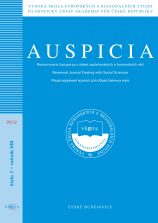Отражение новых социальных реалий в медиадискурсе: тема харассмента
Reflections on New Social Reality in Media Discourse: Topic of Harassment
Author(s): Jan Gregor, Elena TomáškováSubject(s): Media studies, Morphology, Lexis, Eastern Slavic Languages
Published by: Vysoká škola evropských a regionálních studií, z. ú.
Keywords: neologism; media discourse; emotional and evaluative vocabulary; harassment;
Summary/Abstract: The paper deals with a group of lexemes that appeared in the Russian media discourse in connection with the topic of harassment, which became popular after the scandalous events of 2017 in the USA. In 2017– 2018, the topic of sexual harassment and gender inequality was also updated in Russian-language media. The group includes words that were used in Russian before, but in a certain narrow sphere (the word harassment in Russian referred to legal terms and was not known to a broader public), as well as lexical neologisms that appeared as a reaction to new realities. Such neologisms include lexemes Вайнштейнгейт, домогант, митушка, митушный. Attention is paid to the fact that most new lexemes are the hybrid words created within the installation of a language game. On the basis of the analysis, the conclusion is drawn that this lexical group belongs to the emotional-evaluative vocabulary and has a negative connotation. Emotional coloring of the words can be created by derivation means, and also be conditioned by the word’s nominative properties. Negative connotation of the lexical group indicates a trend of negative evaluation of the issue of harassment and the Me Too movement, which prevails in the Russian media discourse. It is suggested that a broad discussion on the topic of harassment indicates changes in the Russian public consciousness.
Journal: Auspicia
- Issue Year: 2018
- Issue No: 1
- Page Range: 62-69
- Page Count: 8
- Language: Russian

